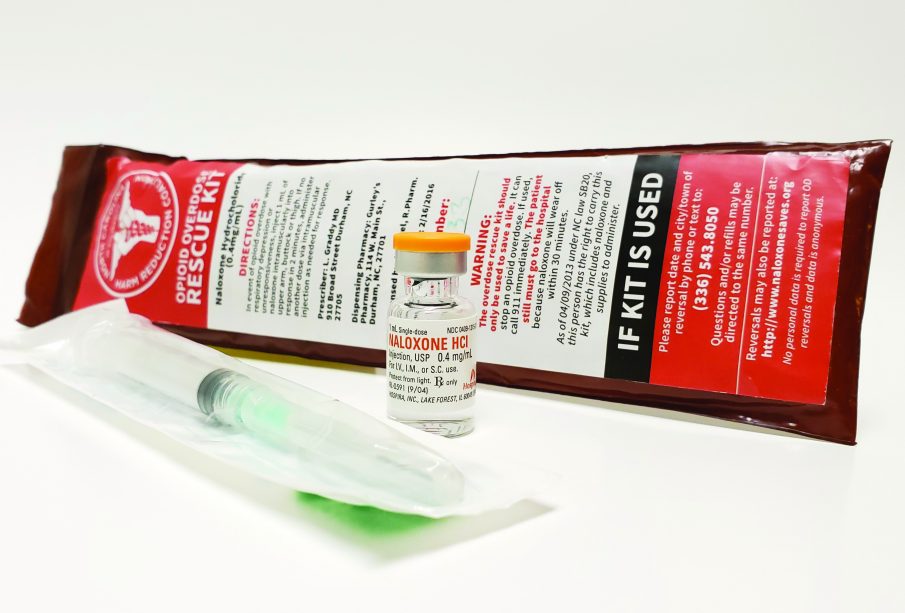
War on Drugs is catastrophic
Saskatchewan, the province I’ve called home for my entire life, has a clear and well-documented issue with substance use. That information is nothing new. Plenty of fine journalists and writers before my time have written better articles than I ever could on our province’s long-standing struggle with this crisis and its consistently inadequate attempts to solve it. Our provincial capital, Regina, has seen substantial increases in narcotics use and overdose over the past ten years, an issue that has become more acute with the rise of fentanyl and other highly potent opioids. I myself was confronted by our city’s systemic substance crisis just last Tuesday when I became the unsuspecting victim of a home invasion and near-witness to a methamphetamine overdose, an experience that only served to remind me that this issue effects us all.
Prior to the onset of the COVID-19 pandemic in early March, Regina was already one of the worst regions nationally for substance-related crime and deaths due to overdose. According to recent statistics from the Saskatchewan Health Department, Regina reported 177 confirmed deaths due to drug related toxicity in 2019, up six from the previous year’s 171. According to a 2020 report from the Canadian Centre on Substance Use and Addiction, the overwhelming majority of these deaths were the result of an overdose of fentanyl or opioids. Unfortunately, the crisis has only grown worse in the wake of the COVID-19 pandemic. Since March, Regina has had at least 172 confirmed cases of death due to overdose with another 207 possible cases. Assuming that even a third of these cases are confirmed as overdoses, 2020 will have been the deadliest year in our city’s history regarding substance related fatalities. As well, drug and alcohol consumption have both risen drastically in the past year, and, so far, the numbers show no sign of change.
The rising numbers can partially be attributed to the general malaise the public has experienced throughout the course of this pandemic, but that still does not explain why the numbers remain so high. The biggest contributors to this staggering loss of life are the same as they’ve ever been, neglect, apathy, and a lack of investment in resolving the social determinants of drug use. The Saskatchewan government has shamelessly cut funding for crucial mental health facilities and programs for the better part of a decade now, and with the Sask Party’s iron-tight majority still intact, the situation is unlikely to improve. Adding to an already dire situation, the many mental health and addiction services were shut down or seriously restricted during the initial rounds of quarantine, a time when these services were needed more than ever, and were refused essential status for nearly two months. During that same period, liquor stores and most major retailors remained open.
Instead of siphoning tax payer dollars to subsidize a rapidly collapsing fossil fuel industry, granting corporations like Bell Media massive tax cuts to maintain hellish monopolies, or pouring more gas on public dumpster fires such as KXL and privatization of healthcare, the government at every level needs to seriously commit to investing in mental health care and addictions treatment and ending the disastrous War on Drugs. Substance use amongst Canadians is at an all time high, our nation’s youth are dying at a staggering rate, and the solutions are staring us right in the face. Studies across the globe have proven time and again that public programs such as needle exchanges, safe supply, supervised consumption, easier access and increased funding for mental health centres, and refocusing on rehabilitation rather than criminal punishment are tried and true strategies in preventing substance-related deaths.
During my encounter last week, what shocked me the most wasn’t the fact that a stranger had barricaded himself in my home, the giant knife in his bleeding hand as he stammered nonsense, or my inner thoughts betting whether I’d have to resuscitate the poor guy in ten minutes. No, what shocked me was how unsurprising, unexciting, and blasé the entire situation felt. I had seen too many news reports on crime statistics, had too many encounters with victims begging for a single cent, and witnessed too many broken and grieving families not to expect this sort of experience. I watch everyday as the desperate and the downtrodden walk past my building to wait for a bus ride they can’t afford before a string of BMWs and lifted trucks drive by. After the police knocked on my door and the terrified stranger was peacefully detained and removed from the premises, I didn’t feel fear or sadness. To be perfectly honest, I felt angry and hollow, and I felt like I hadn’t done enough to help him.









